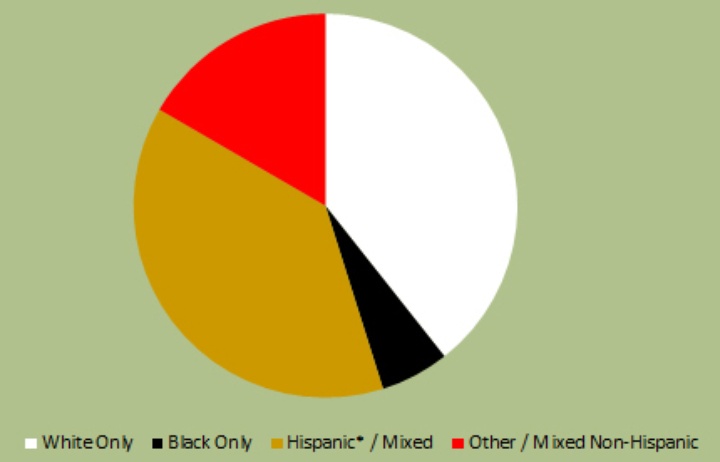“[Ancient]
Romans were like New Yorkers. They came from somewhere else, and they
were proud of it.”
— Ferdinand Mount
###
I see that Donald Trump is going to deport either two million or eleven million illegal aliens his first hour in office. It’s all a bit foggy (as befits a politician trying to play both ends of the spectrum) but in either case, surely it’s going to take more than 60 minutes. A weekend, at least.
Here’s our sitting President on the topic, last week: “Unless you’re Native American, someone brought you here. Someone came here. You came from some place else now, so I just want to be clear about that. And not everybody had their papers straight when they came. I’m just saying.”
(Actually, even if you are Native American, your ancestors still got you here, just about 15,000 years earlier than the rest of us.)

Chinatown, Manhattan (e chensiyuan, GNU Free Documentation License)
Since we’re living in the most populous state of the Union, it’s worth looking at how multiculturalism is working here in the Golden State. In 1821, Alta California became part of newly-independent Mexico. That state of affairs only lasted for 37 years, when self-declared president Santa Anna foolishly gambled and lost the 1848 Mexican-American War (thus managing to lose half of Mexico’s territory in 12 years). The “Mexican Cession” resulted in California being enfolded into the USA, and we became the 31st state in 1850. Which I suppose looked like a win for gringos.

California’s population by race, 2012. (PopulationByState.com)
¡Bienvenidos a Nuevo California! In 1970, Latinos numbered 2.4 million, one eighth of the population of California. By 2014, 15 million Latinos lived in the state, edging out 14.9 million whites. Legal or illegal doesn’t really come into it—us white folks (83% of us are white in bland Humboldt) are now officially minority status in the state. Not incidentally, the median age of Latinos in California is 29; of whites, 45.

Eureka’s ethnic make-up, 2010 (U.S. Census Bureau/localtown.us)
Which, from my point of view, is great. Multiculturalism and trade are the best possible antidotes to our ancient and inborn tendency to fight neighboring tribes while cooperating with our own. Having a mixed population also makes a state stronger and more able to cope with changing fortunes, the classic example being Greeks vs. Romans. Briefly:
Rome, both as a Republic and as an Empire, flourished as a result of its multi-ethnic, open-borders policy. For centuries, citizens and non-citizens lived and worked and fought side by side. Non-citizens either were granted citizenship, or they were integrated into the state, thus benefiting from it. (In 212 AD, Emperor Caracalla declared all freemen to be Roman citizens.) The Greek city-states had adopted the opposite tactic, fiercely guarding the rights of their “citizenship by inheritance” policy. If you were a “metic,” that is, an immigrant (whether freeman or slave), you paid for the burdens of citizenship while enjoying none of its privileges.
Greek democracy began more or less contemporaneously with the Roman Republic. According to the “strength through multiculturalism” theory, the Greeks’ us-and-them policy towards immigrants fostered weakness, while cosmopolitan Rome grew more powerful. Roman victory over the Corinthians in 146 BC ended the Achaean War, and with it the Greek experiment in ethnic barriers.
Okay, the world isn’t all about Greeks versus Romans anymore, and someone with a better grasp of history could probably come up with a bunch of counter-examples. But we live in a dangerous time and place where tolerance for differences is evidently a better approach than building walls (real or metaphorical), sending illegal immigrants home and alienating foreigners all over. Our planet is just too small.
CLICK TO MANAGE